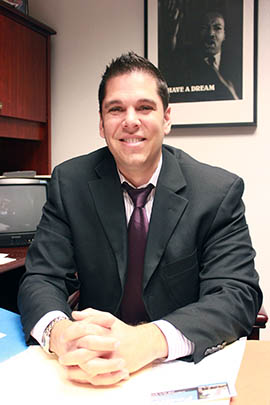Cronkite News has moved to a new home at cronkitenews.azpbs.org. Use this site to search archives from 2011 to May 2015. You can search the new site for current stories.
Lawmaker: Require schools to use eco-friendly cleaning supplies
PHOENIX – Requiring schools to use eco-friendly cleaning supplies would promote the safety and health of children, a state lawmaker contends.
“Schools are where our children are,” said Sen. Ed Ableser, D-Tempe. “We need to use green products to promote health.”
He authored SB 1072, which would require public school districts and charter schools to use “environmentally sensitive cleaning products” after depleting current stocks. If a school can’t afford to purchase them, it would have to provide written documentation showing why.
It’s among several provisions in the bill, which also would require school districts, universities, community college districts and state agencies to purchase at least 10 percent of their power from “green sources” by 2019 and provide grants to conserve electricity and water in public buildings.
Scottsdale Union School District has been paying close attention to any negative side effects its cleaning materials may cause, said Rick Freeman, the district’s director of construction services. It eliminated the use of chlorine bleach after studies showed the chemicals could be harmful, and desks are currently cleaned with antibacterial soap.
“Antibacterial soap isn’t tremendously harmful,” Freeman said. “It also isn’t harmful to the environment if it goes down the drain.”
However, Freeman said the district doesn’t use products labeled as eco-friendly because they don’t kill all the germs.
“Districts could convert to eco-friendly supplies, but the question is are we killing all the bacteria?,” Freeman said.
Michael Dalrymple, a project manager for Arizona State University’s Global Institute of Sustainability, said that schools should convert to eco-friendly products. Green cleaning supplies have been plentiful for the past decade but the recession dented progress toward more sustainable practices, he said.
Childhood asthma and allergy rates have increased, and some of the cleaning chemicals could be to blame, he said.
“The health of our kids is a huge reason for green cleaning in our schools,” Dalrymple said.
Abelser said he doesn’t expect his bill to become law.
“Many of our legislators don’t understand that sustainability is cheaper and more effective in the long term,” he said.







